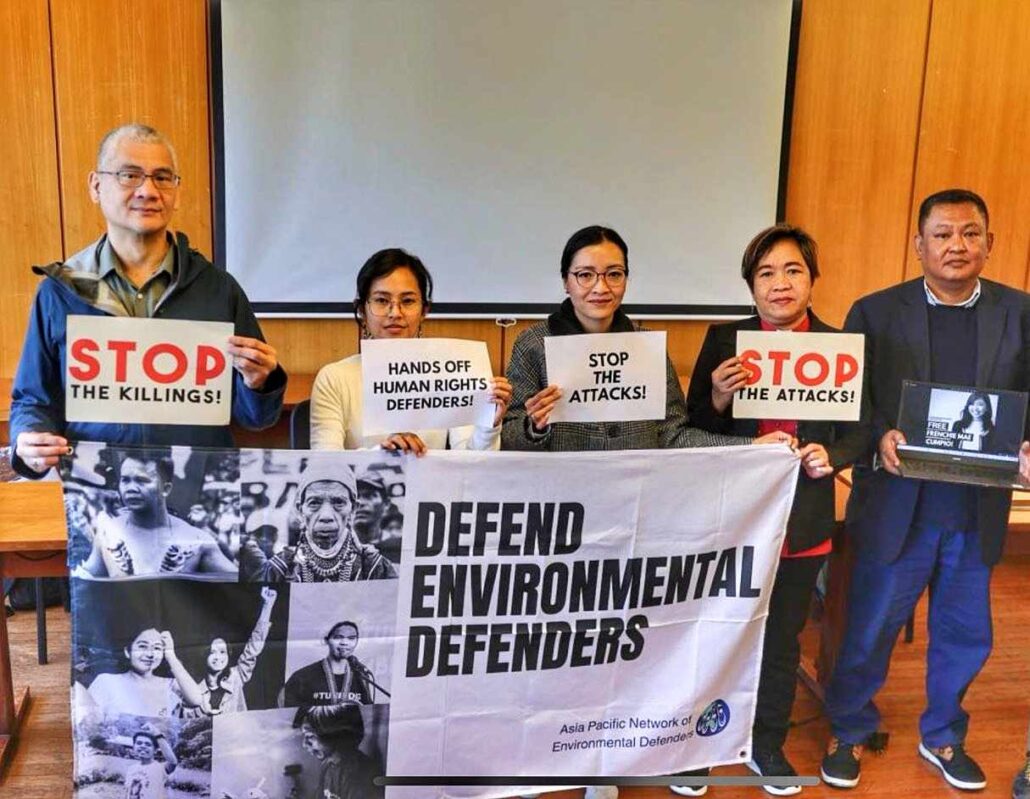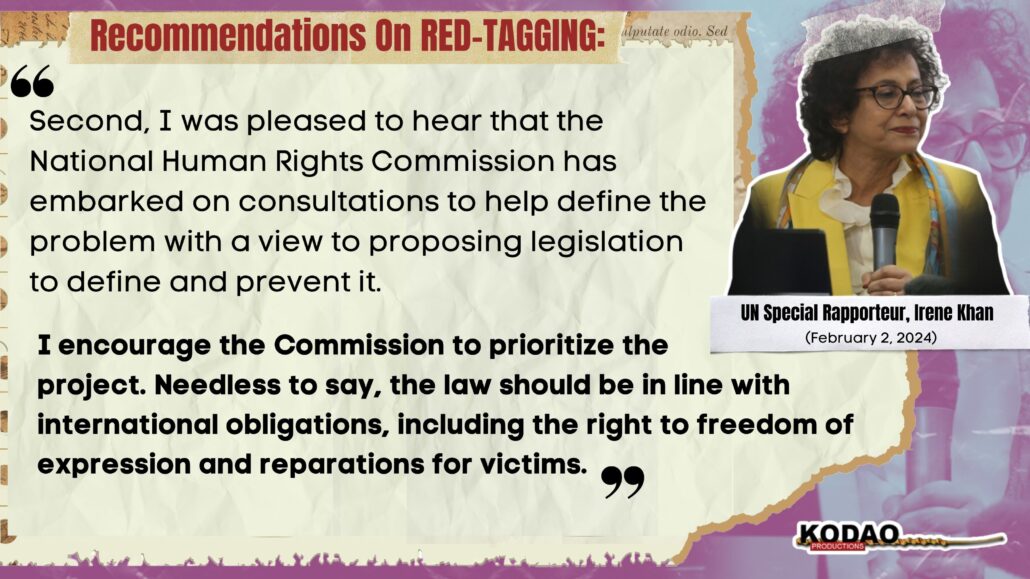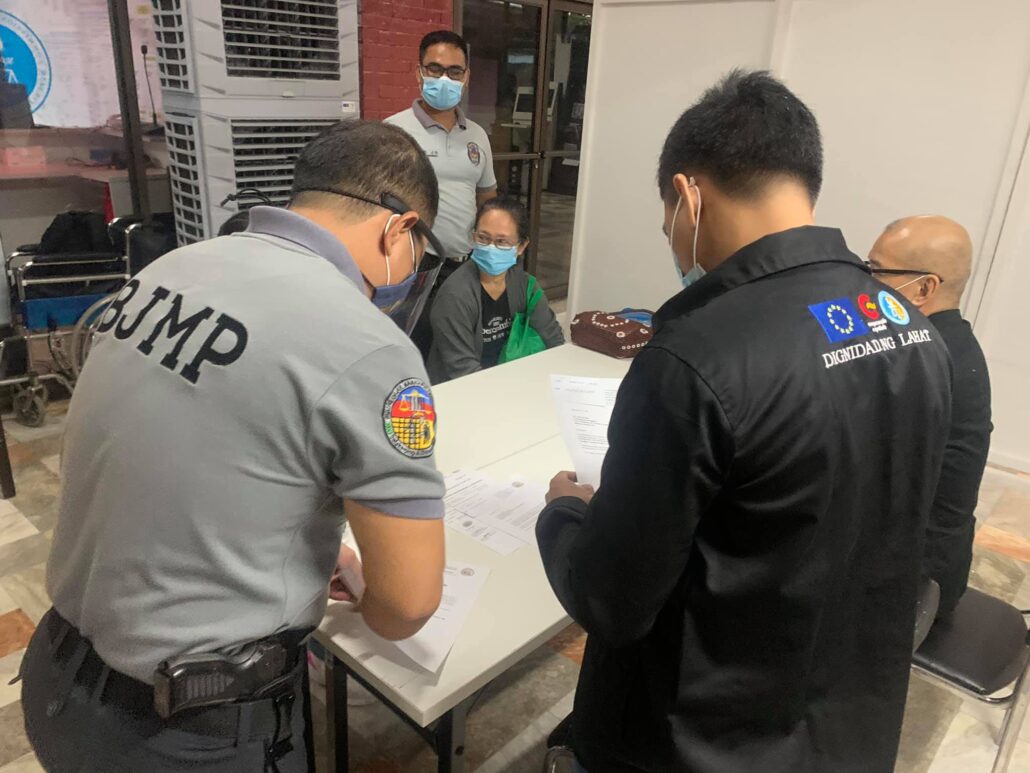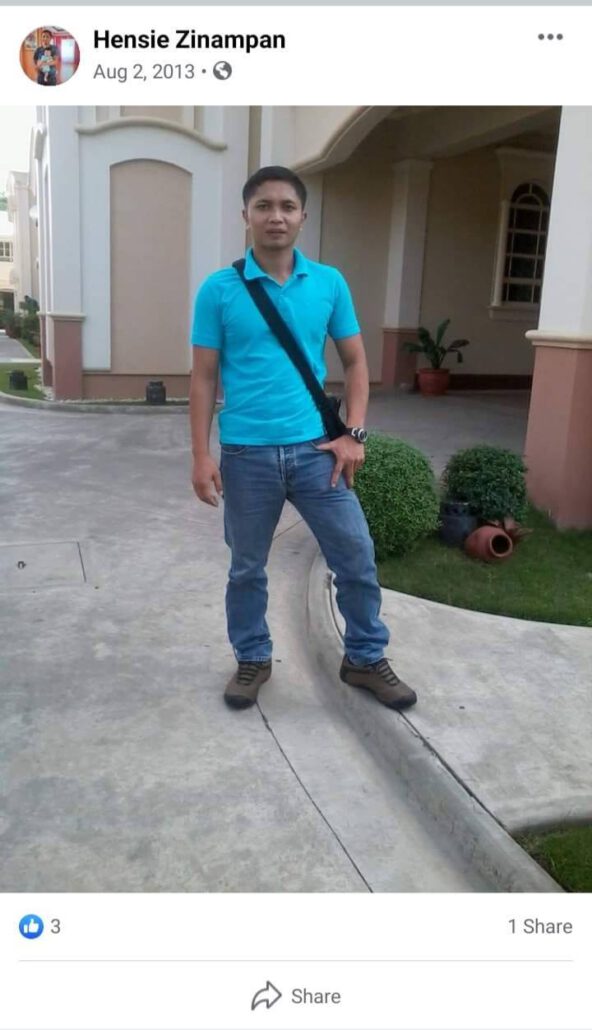CHR tells world of red-tagging, misuse of counter-terror measures
Rights defenders ask UN to conduct investigations in PH
The Commission on Human Rights (CHR) in the Philippines called on the Philippine government to end the practice of red-tagging and ensure that counter-terrorism measures are not “weaponized” against activists and political opponents.
In an intervention in the ongoing United Nations Human Rights Council (UNHRC), CHR chairperson Richard Palpal-latoc said the Commission is seriously concerned about the Philippine government’s misuse of counter-terrorism measures to curtail the right to freedom of expression and peaceably assemble in the country.
“[It] creates a chilling effect in human rights activism in the country,” Palpal-latoc said in a video-taped message as part of the interactive dialogue on UN special rapporteur on counter-terrorism and human rights Ben Saul’s report last March 12 .
“State agents and institutions, particularly the law enforcement, using State resources, systematically engage in red-tagging, which is the act of branding or accusing individuals or organizations, many of whom are human rights defenders and community workers,” Palpal-latoc revealed.
He added that victims of red-tagging are labeled as subversives or communists that facilitate and carry out terrorist acts.
“Red tagging legitimizes intrusion into civilians’ private lives and has dangerous consequences – online and physical attacks, prolonged incarceration, and even death to some,” the CHR chairperson said.
Palpal-latoc said the Philippine national human rights institution joins the international Treaty Bodies, Special Rapporteurs, UN Member States, and global civil society organizations in calling the Philippine Government to end the practice of red-tagging and ensure that counter-terrorism measures are not weaponized against activists and political opponents.
“We also strongly encourage the Government to work with the Special Rapporteur Mr. Ben Saul, in reviewing the human rights impacts of the country’s counter-terrorism policies and practices through an official country visit,” he added.

(Photo by the World Council of Churches)
Just as bad under Marcos
Meanwhile, delegates of the Philippine UPR (Universal Periodic Review) Watch in Geneva said the human rights situation is not better under the Ferdinand Marcos Jr. government, contrary to what government officials are telling UN member states.
In a side event UN HRC session last March 14, the delegation echoed CHR’s revelation of red-tagging and weaponization of the Anti-Terrorism Act (ATA) of 2020 in the Philippines, adding the Marcos administration has continued with repressive and oppressive policies implemented under the previous Rodrigo Duterte regime.
“High level envoys have been here at the start of this UNHRC session telling other member states and the UN in general of the so-called successes of the UN Joint Program (UNJP) that has been implemented in the Philippines in the last three years. What success is the Marcos government talking about when rights violations continue unabated?” IBON executive director Sonny Africa asked.
Department of Justice undersecretary Raul Vasquez claimed in an oral statement to the UNHRC last February 27 that the Philippine government “strengthen[ed] existing domestic human rights mechanisms (through the UNJP) in support of [the government’s) rights-based development agenda.”
Vasquez also announced that the Marcos government shall establish “a human rights coordinating council (HRCC) to take over and broaden the programs identified under the UNJP, and ensure greater participation of other government agencies and civil society organizations.”
Africa said that both IBON and Karapatan are members of a technical working group within the UNJP and they have a front row seat of how capacity-building exercises are ineffective when laws such as the Anti-Terrorism Act are still actively used to oppress human rights defenders.
“The Marcos government cannot claim success of the UNJP when the drug killings continue, such as in the case of Jemboy Baltazar killed by the police 13 months into the Marcos presidency. Worse, the police officer who shot him was given a very light sentence and his cohorts were set free in what the court described was a simple case of mistaken identity,” Africa said.
Africa added that the planned HRCC is likely to become another failure like the UNJP.
“As long as the Marcos government continues to ignore the recommendations made by UN special rapporteurs who recently visited the country, such as the abolition of the red-tagging National Task Force to End Local Communist Armed Conflict and the review of the Anti-Terrorism Act (ATA) 2020, there will be more rights violations,” Africa warned.
Clergy, environmentalists as ATA victims
United Methodist Church clergy and National Council of Churches in the Philippines member Rev. Glofie Baluntong narrated how the ATA was used to drive her away from Southern Tagalog where she was a Distrist Superintendent for Mindoro and Romblon.
Baluntong was charged with alleged violation of the ATA in 2021 for her defense of the indigenous Mangyan in Mindoro who resist mining and logging operations in the island.
Center for Environmental Concerns executive director Lia Mai Torres narrated how two state abduction survivors and fellow environment defenders Jhed Tamano and Jonila Castro were supposed to be part of the Philippine UPR Watch delegation but for additional charges filed against them by the DOJ.
“The ongoing UH HRC session, being the first one after their abduction and dramatic walk to freedom, would have been the most opportune time for the two brave environmental activists to share to the world their ordeal in the hands of the Marcos government,” Torres said.
The DOJ filed a grave oral defamation charge against Tamano and Castro last February before the Dona Remedios Trinidad Municipal Trial Court for allegedly maligning the Philippine Army.
“The irony of the kidnappers charging their abductions victims is simply incredible,” Torres quipped.
800 political prisoners
Karapatan legal counsel Ma. Sol Taule told attending Geneva graduate students and Geneva-based international civil society organizations of the 800 political prisoners languishing in various jails throughout the Philippines.
“The fact that the Marcos government keeps in jail hundreds of political prisoners is testament that the human rights situation in the Philippines under Marcos Jr. is not better,” Taule said.
“Since the compromise project of UNJP did not produce the intended result of respect for human rights in the Philippines, we urge the United Nations to revisit the approved 2019 Iceland resolution for the conduct of an independent investigation,” she said.
Taule added that the DOJ has no right to head the proposed HRCC given its lack of credibility in delivering justice to human rights violations victims, as in the case of the notorious Bloody Sunday killings in Southern Tagalog three years ago that killed five activists and killed several others in a single day.
The lawyer also cited the DOJ’s role in Administrative Order 35 creating the Inter-Agency Committee on Extra-Legal Killings, Enforced Disappearances, Torture and other grave violations to the Rights to Life, Liberty and Security of Persons in 2012.
“The world knows the Philippine government’s bloody record in killing thousands upon thousands of suspected drug dependents as well as human rights defenders and simple civilians. What moral right does DOJ have to head a human rights coordinating council?” Taule asked.
“The Philippine government is lying about the real situation on the ground and it is miserable failing to abide by its commitments to the international community. It is high time for the UNHRC to find the truth out for itself by conducting its own investigation,” the human rights lawyer added. # (Raymund B. Villanueva)
= = = = =
(DISCLOSURE) The reporter is a member of the Philippine UPR Watch delegation as chairperson of the People’s Alternative Media Network who met with UN Special Rapporteur on freedom of expression and opinion Irene Khan last January.




